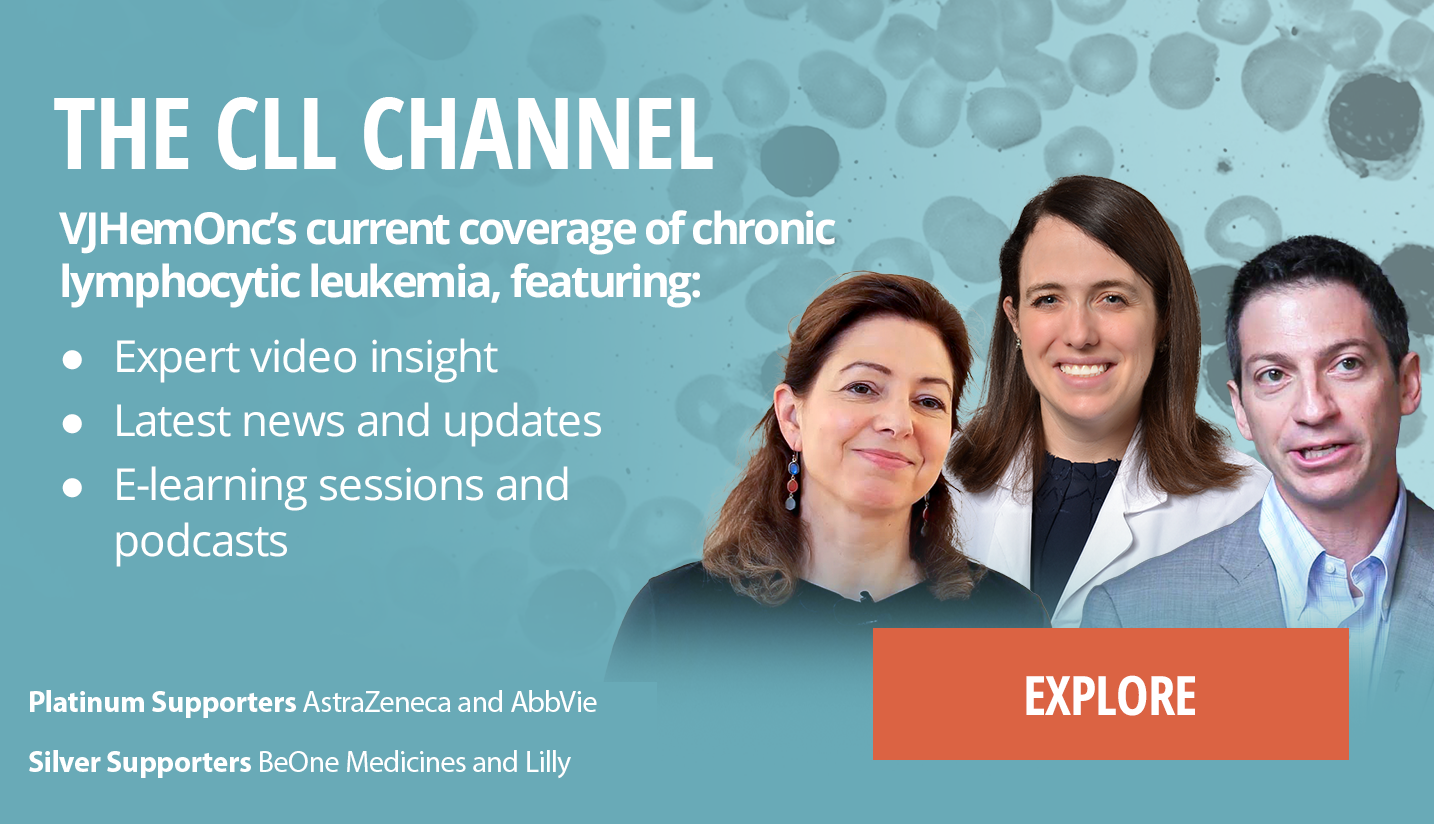So this is a very timely question because we are about to publish the new UK CLL treatment guidelines, which have been updated following the update of European, American, and German guidelines in light of new treatments available. So our guideline are going to go and recommend treatments based on your choice of therapy, where it will be fixed duration or continuous therapy...
So this is a very timely question because we are about to publish the new UK CLL treatment guidelines, which have been updated following the update of European, American, and German guidelines in light of new treatments available. So our guideline are going to go and recommend treatments based on your choice of therapy, where it will be fixed duration or continuous therapy. So for continuous therapy we’ve got in the UK the alternatives of acalabrutinib or zanubrutinib, and for the fixed duration alternative we currently have ibrutinib and venetoclax, and venetoclax and obinutuzumab as kind of more standard or kind of established approaches. And we recently have a marketing authorization for acalabrutinib and venetoclax, which is likely going to come into play within the next few months. So we got three different fixed-duration alternatives for our CLL patients now, and we’ve got a good task ahead of trying to identify which patient suits best each of these three approaches based on the results of the trial, the population, there’s slightly differences of the studies in terms of the proportion of high-risk patients that were included and age and comorbidities, etc.
So it will be interesting to see how we manage to place each of these three alternatives into the sort of the spectrum of therapy, but I think the direction of travel overall is moving towards fixed-duration therapy. I think patients are starting to value more and more the benefits of the treatment-free period. And when you are talking with patients before they start therapy and you give them a good explanation of what the treatments are, in my experience more and more patients are finding it beneficial to have these treatment-free periods in which they have very little or essentially no side effects, and they’re going back to their normal life after therapy. So I think that’s going to be the direction of travel. Also because it’s beneficial for our health system in comparison with continuous therapy which is much more expensive for our health system, which we know has a lot of tribulations in terms of funding and such.
This transcript is AI-generated. While we strive for accuracy, please verify this copy with the video.















